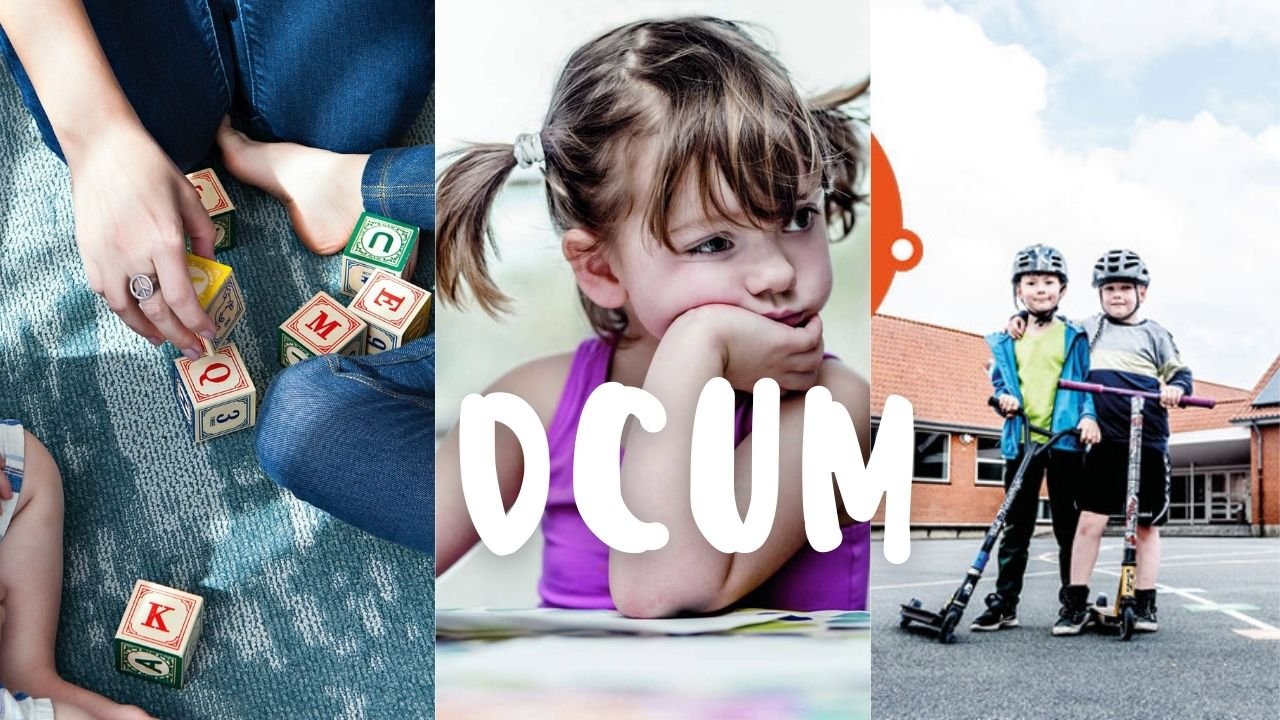Introduction
The Dansk Center for Undervisningsmiljø, commonly known as DCUMs, plays a crucial role in the Danish educational system. The organization is dedicated to improving schools’ teaching and learning environments across Denmark. With a focus on creating safe, inclusive, and supportive settings, Dansk Center works closely with educational institutions, policymakers, and stakeholders to ensure that students and teachers can thrive in an environment conducive to learning. The significance of DCUMs in the academic landscape cannot be overstated, as it addresses the physical and psychological aspects of the learning environment.
The Mission of the DCUM
The primary mission of the Dansk Center for Undervisningsmiljø is to promote and support the development of a positive educational environment. Dansk Center believes a well-maintained, safe, and supportive learning environment is essential for students’ academic and personal growth. By providing resources, guidance, and support to schools, the Dansk Center helps to ensure that educational institutions can offer the best possible environment for their students. The organisation’s mission is to improve physical spaces and foster a culture of respect, inclusivity, and collaboration within the school community.
DCUM Focus Areas
Dansk Center focuses on several key areas that can be improved in the educational environment in Danish schools. These areas include the physical environment, such as classrooms and facilities, and the school’s social and emotional climate. Dansk Center also addresses issues related to student well-being, bullying prevention, and the overall safety of the school environment. By addressing these diverse areas, the Dansk Center for Undervisningsmiljø aims to create a holistic approach to enhancing the learning environment, ensuring that all aspects of a student’s experience are considered.
Physical Environment and Infrastructure
One of DCUM’s main focus areas is the physical environment of schools. The organization emphasizes the importance of well-designed and well-maintained school facilities conducive to learning. This includes ensuring that classrooms are well-lit, adequately ventilated, and equipped with the necessary resources and technology. The physical environment also extends to outdoor spaces, such as playgrounds and sports facilities, which are crucial to the educational experience. Dansk Center works with schools to assess and improve these physical aspects, ensuring they meet the needs of students and staff.
Social and Emotional Climate
Notwithstanding the actual climate, Dansk Center firmly accentuates the social and close-to-home environment inside schools. The organization recognises that a positive social environment is essential for students to feel safe, supported, and engaged in learning. Dansk Center provides schools with tools and strategies to create a culture of respect, inclusivity, and kindness. This includes initiatives to prevent bullying, promote mental health, and encourage positive relationships among students and staff. By focusing on the school environment’s social and emotional aspects, DCUM helps create a space where students can thrive academically and personally.
Student Well-being
Student well-being is at the core of Dansk Center’s work. The organisation recognises that students’ mental and emotional health is as important as their academic success. DCUM provides schools with resources and support to promote student well-being, including programs focused on stress management, mental health awareness, and resilience building. By addressing the well-being of students, Dansk Center ensures that they have the emotional support they need to succeed in their academic endeavors. The focus on well-being also extends to teachers and staff, recognising that a positive environment benefits everyone in the school community.
Collaboration with Schools
Dansk Center works closely with schools to implement its initiatives and support their efforts to improve the educational environment. The organization collaborates with school leaders, teachers, and students to identify areas for improvement and develop strategies to address them. This collaborative approach ensures that the solutions provided by DCUMs are tailored to the specific needs of each school. By working together, Dansk Center and schools can create a more effective and sustainable impact on the learning environment. The partnership between the Dansk Center and schools is essential for successfully implementing its mission.
Research and Resources
One critical way that DCUM supports schools is by providing research and resources on best practices for creating a positive educational environment. The organization researches various aspects of the learning environment, including the physical layout of classrooms, the impact of social interactions on student learning, and the effectiveness of different teaching methods. Dansk Center then shares these findings with schools, offering evidence-based recommendations and resources to improve educational practices. The Dansk Center ensures its initiatives are grounded in current and effective practices by staying informed about the latest research.
Support for Teachers and Staff
Teachers and staff play a crucial role in shaping the educational environment, and Dansk Center recognises the importance of supporting them in their work. The organization offers professional development opportunities, resources, and guidance to help teachers create a positive learning environment. This includes training on classroom management, strategies for promoting student engagement, and support for addressing students’ diverse needs. By providing teachers with the tools and resources they need, DCUM helps to ensure that they can create a supportive and effective learning environment for their students.
Parental Involvement
Dansk Center also emphasizes the importance of parental involvement in creating a positive educational environment. The organization encourages schools to partner with parents and guardians in their children’s education. This includes involving parents in school activities, informing them about their children’s progress, and providing resources to support learning at home. DCUM helps create a more supportive and inclusive educational environment by fostering strong partnerships between schools and families. Parental association is essential to understudies’ prosperity and the school’s local area’s general achievement.
Inclusive Education
Inclusivity is a fundamental principle of the Dansk Center’s work. The association guarantees that all understudies, no matter their experience, capacities, or necessities, approach excellent schooling in an intense climate. DCUM works with schools to implement
inclusive practices that accommodate the diverse needs of students. This includes providing resources and training on supporting students with disabilities, promoting cultural awareness, and ensuring all students feel valued and included in the school community. By promoting inclusivity, the Dansk Center helps to create a more equitable and just educational environment.
Safety and Security
Safety and security are critical components of a positive educational environment, and Dansk Center takes these issues seriously. The organization works with schools to assess safety procedures and implement measures to protect students and staff. This includes everything from physical security measures, such as secure entrances and emergency preparedness plans, to policies that address online safety and digital citizenship. Dansk Center’s comprehensive approach to safety ensures that schools are equipped to handle various situations and that students can learn in a secure environment.
Technology in Education
In today’s digital age, technology plays a significant role in education, and DCUM is committed to helping schools integrate technology effectively into the learning environment. The organization guides the use of technology to enhance teaching and learning while ensuring it is used responsibly and ethically. This includes training on digital literacy, online safety, and educational technology tools. By helping schools navigate the challenges and opportunities of technology in education, Dansk Center supports creating a modern and dynamic learning environment.
Evaluation and Feedback
Dansk Center believes in the importance of continuous improvement, and the organization regularly evaluates its initiatives and seeks feedback from schools. This process allows the Dansk Center to assess the effectiveness of its programs and make adjustments as needed. By listening to schools’ experiences and needs, the Dansk Center can provide more targeted and practical support. The organization also encourages schools to self-evaluate and reflect, helping them identify improvement areas and develop strategies to address them. This commitment to evaluation and feedback ensures that the Dansk Center’s work remains relevant and impactful.
Future Directions for Dansk Center
Looking to the future, the Dansk Center is committed to continuing its work to improve educational environments in Denmark. The organization plans to expand its initiatives, develop new resources, and strengthen its partnerships with schools and other stakeholders. Dansk Center also aims to stay at the forefront of educational research and best practices, ensuring its work remains relevant and effective in a rapidly changing academic landscape. By continuing to innovate and adapt, Dansk Centers will play a vital role in shaping the future of education in Denmark.
Conclusion
In conclusion, the Dansk Center for Undervisningsmiljø (DCUM) is a vital organization dedicated to enhancing the educational environment in Danish schools. Dansk Centre plays a crucial role in creating a supportive and effective learning environment through its focus on the physical environment, social and emotional climate, and the overall well-being of students and staff. The organization’s work is essential for ensuring that all students have the opportunity to succeed academically and personally. As DCUM continues to evolve and expand its initiatives, its impact on the Danish educational system will undoubtedly continue to grow, making a lasting difference in the lives of students and teachers across the country.



